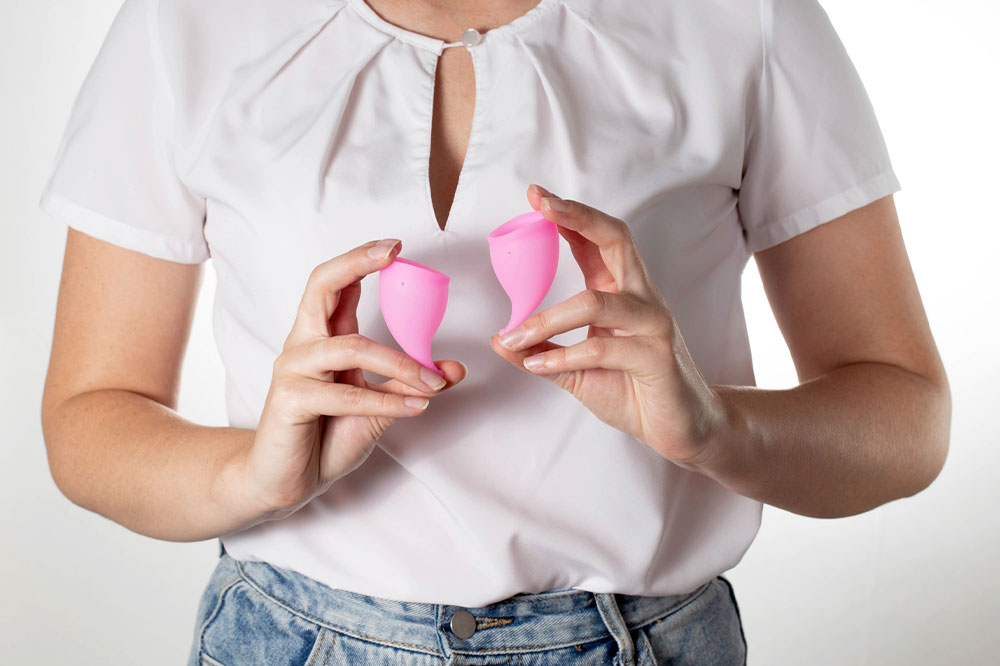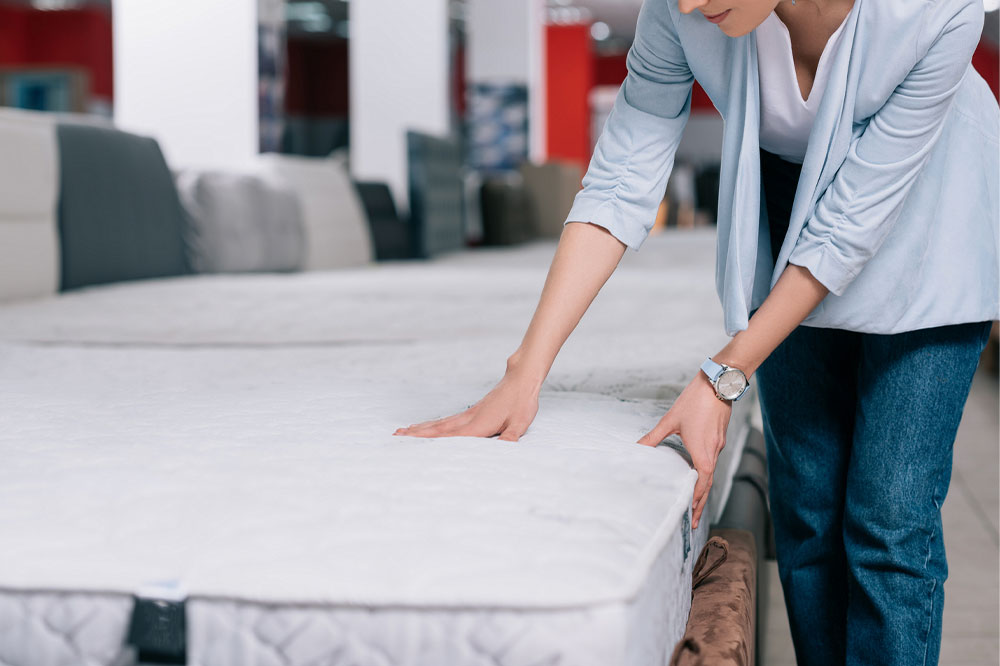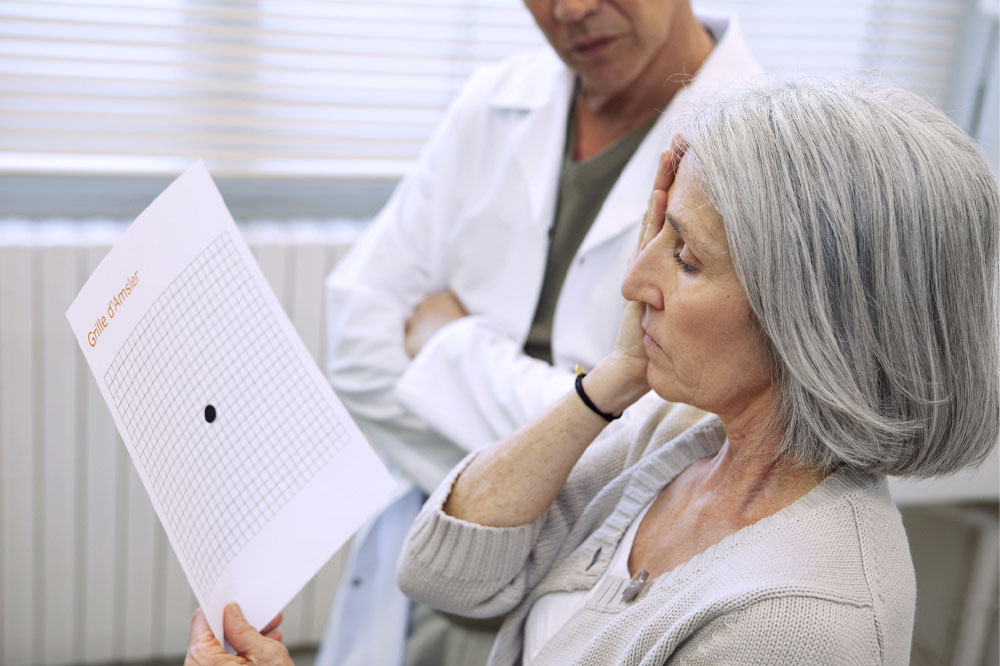7 tips for dealing with heavy periods

Those who menstruate often deal with a heavy period flow. Heavy menstrual bleeding that lasts over 7 days is called menorrhagia—a common concern that causes blood loss and cramping. If left unattended, it can lead to complications like anemia and pain in the abdomen and pelvic region. Excessive bleeding can disrupt daily activities due to low energy levels and discomfort. However, one can manage heavy periods by making certain lifestyle changes and better food choices.
Key tips
Women may experience a heavy period flow once in a while; however, persistently heavy periods can interfere with daily activities and lower energy levels. One should consult a healthcare professional to understand the causes and treatment for menorrhagia. Additionally, one can try the following easy hacks to cope with heavy period flow:
Make a period care kit
The length of a period cycle can differ slightly for everyone. But on average, a cycle is anywhere between 28 and 35 days. So, by keeping track of the cycle, one can plan ahead to minimize discomfort during periods. One of the easiest ways to reduce the discomfort is preparing a period care kit, especially if one is away from home on their period. To the kit, one can add necessities such as tampons, pads, a change of clothes, hot water bottles, and, if needed, some comfort food. Further, sweaters or long-sleeved jackets are great additions to the period care kit, as they can be tied around the waist in case of any accidents during the day. If tampons and pads are inconvenient, one can add period underwear and menstrual cups to the kit to manage the heavy flow.
Get enough rest
Once the menstrual bleeding begins, it can last anywhere from 4 to 7 days. During this time, one loses a little blood (2 to 3 tablespoons), making them feel tired during the day. But with heavy period flow, the blood loss can be severe, about twice the normal amount, and the bleeding can last for more than 7 days. So, those who experience menorrhagia should take enough breaks during the day to ensure they get enough rest to deal with heavy blood loss. This way, one can continue their daily activities without compromising physical and mental well-being. Further, getting adequate rest can lower the risk of fatigue, which is often associated with heavy periods.
Keep sanitary products on hand
Planning ahead does help, so one should stock up on sanitary products, such as tampons, sanitary napkins, menstrual cups, and period underwear before their period. Additionally, it is important to keep the products in easily accessible places. Further, one must consider getting bigger sizes, highly absorbent products, and those with maximum coverage to deal with heavy blood flow. The products should be placed in bathrooms, drawers (at work and home), regular-use handbags, and bedrooms so that they are within reach whenever needed.
Get some exercise
While exercising may seem unappealing and uncomfortable during periods, physical activity can help in managing menorrhagia. However, certain exercises should be avoided during this time. This means one should skip intense workouts such as leg presses and dumbbell squats. Alternatively, one can try low- or- moderate-intensity exercises like yoga, walking, light cardio, and aerobic exercises if they seem manageable. Physical activities can offer certain benefits like relieving PMS symptoms to an extent, releasing endorphins to boost mood and avoid stress, and an increase in strength. Finally, mild exercise can help in combatting painful menstrual cramps, reducing overall discomfort.
Avoid caffeine
Caffeinated foods and beverages contain certain compounds that can irritate the stomach’s inner lining, increasing the risk of issues like bloating, cramps, and pain. So, one should avoid caffeine altogether or limit its intake during periods. Likewise, one should skip sweet and carbonated beverages to avoid excessive bloating. As an alternative to these beverages, one can drink herbal teas to alleviate the symptoms of menorrhagia. Green tea, ginger, peppermint, raspberry leaf, and chamomile are also great alternatives to coffee. Herbal teas may help reduce the discomfort caused by bloating and make one feel better while menstruating.
Stay hydrated
One of the key hacks to cope with heavy period flow is to stay hydrated at all times. Drinking adequate water can help one keep constipation at bay. Additionally, staying hydrated can improve overall bodily function, making one feel better. On average, one should aim to drink a minimum of 8–10 glasses of water every day. Drinking enough water can also reduce bloating, cramps, and fatigue associated with menstruation. Further, dehydration can increase the risk of cramps and even skin issues like acne.
Choose iron-rich foods
A heavy period flow could lead to excessive loss of blood, which can have adverse effects on the iron levels in the body, leading to complications such as anemia. Anemia is the shortage of healthy red blood cells in the body; it causes symptoms like extreme fatigue, shortness of breath, weakness, irregular heartbeat, chest pain, and cold hands and feet. To keep anemia at bay, one should add iron-rich foods to their daily meal plan, especially during periods. A few excellent sources of the mineral are spinach, broccoli, peas, collards, and string beans.
In addition to trying the above-mentioned easy hacks to cope with a heavy period flow and its associated signs, one can consider taking iron and vitamin supplements, trying dark chocolate, and wearing period underwear at night. However, one should seek a doctor’s guidance before opting for any at-home remedies or supplements. Further, when menorrhagia worsens or causes extreme discomfort, one must consult a health professional as soon as possible. The doctor can determine the underlying issues causing heavy bleeding. Further, getting examined can help one find appropriate treatment for dealing with excessive menstrual bleeding.


